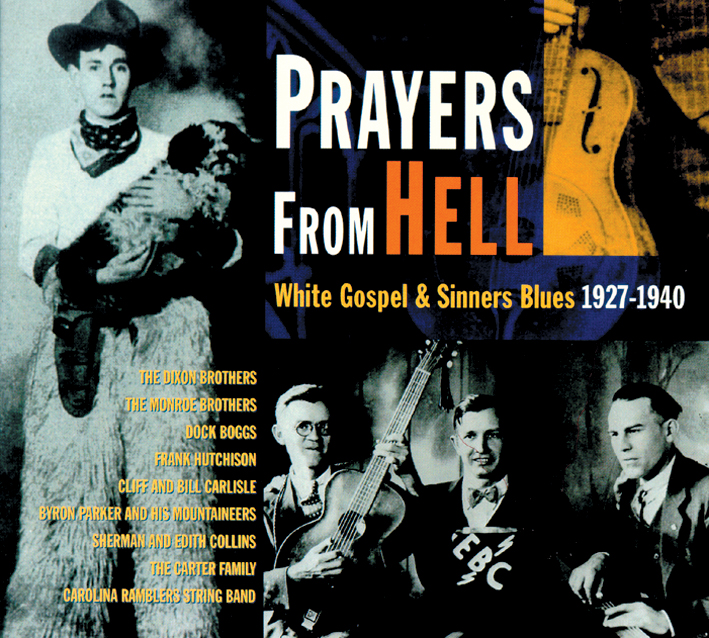Himmel und Hölle lagen im ländlichen Süden der USA eng beieinander. Geschunden von Armut und getrieben von Hoffnungslosigkeit glich das Leben der Leute, von denen Städter nur als ,white trash‘ sprachen, einer Achterbahnfahrt, hin und hergerissen zwischen Gewalt und Frömmigkeit nur die zwei Seiten der gleichen Medaille.
Hier finden wir Spuren wieder, die die zahlreichen Ur-kommunistischen, christlichen Einwanderergemeinschaften in der frühen amerikanischen Freiheitsgeschichte hinterlassen haben ihre hellen und dunklen Seiten. Wie das Leben, so die Lieder!
In den weißen Gospels und den Songs der Sünder aus den 20er und 30er Jahren begegnet uns das alte unheimliche Amerika in ganz unverstellter Form. Mörderballaden, Hillbilly Spirituals, Katastrophen Songs und dann wieder die reuevollen Gesänge aus der Gefängniszelle zwischen diesen Polen spannt sich das Repertoire der großen Sänger und Gruppen der frühen Countrymusik, denen Greil Marcus ein großes Buch widmete: ,Die europäischen Modernen versuchten alle extrem zu sein. Die großen Amerikaner waren einfach extrem.‘ Von Bob Dylan bis Kurt Cobain haben viele amerikanische Künstler aus diesem älteren Underground gelernt und gezehrt.
„Prayers From Hell… is a checklist of string bands (Byron Parker & His Mountaneers, The Dixon Brothers and white blues artists (Frank Hutchison) who felt the push and pull of a ’sinful‘ career in music versus sacred obligations. Dock Boggs experienced this opposition more deeply than most. His career trajectory saw him forsake coal mining for notoriety as a banjo player of freakish talent and a singer of scalding intensity. During the first wave of enthusiasm for his music, Boggs quit his career in 1930 at his wife’s insistence that he was being led down the wrong path. Interest in his work was stirred by the inclusion of tracks such as „Sugar Baby“ and „Count Blues“ on Smith’s Anthology, these and others (included here as well) led to Boggs’s return to performing three decades later, a welcomed presence at 60s folk festivals. Homebrewed musical physicists, The Monroe Brothers accelerated the quantum particles of the shape note hymns and square dance music on which they were raised. Bluegrass was the eventual result of their high-speed renditions of religious (I Am Ready To Go“) and secular material, though none of Bill Monroe’s later solo work would touch the feral verve o tracks such as these“ Wire, UK.
